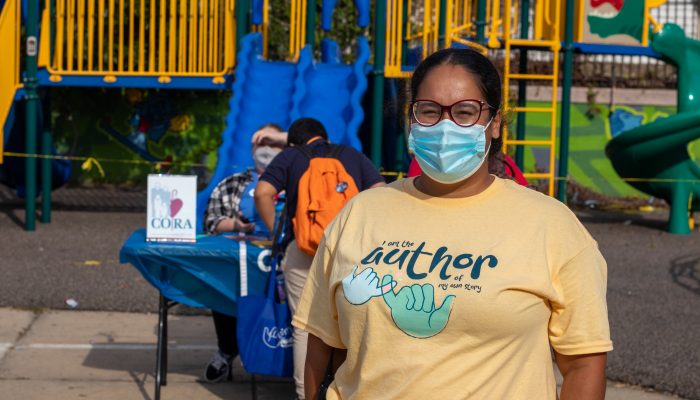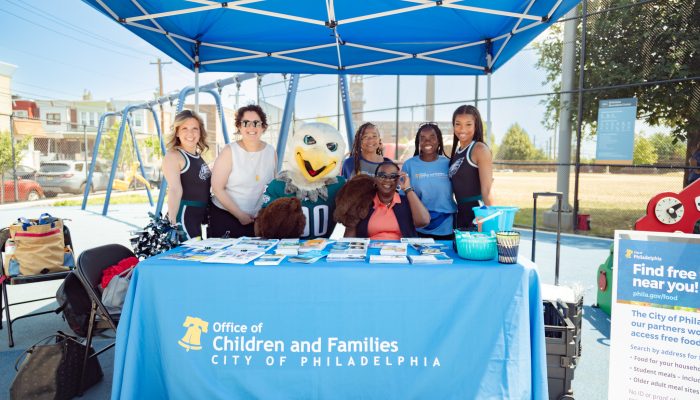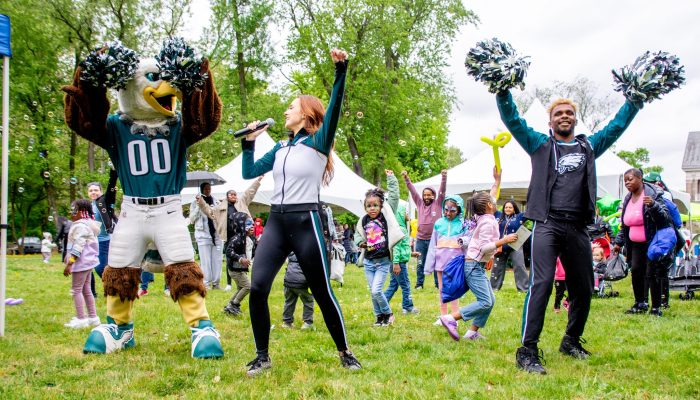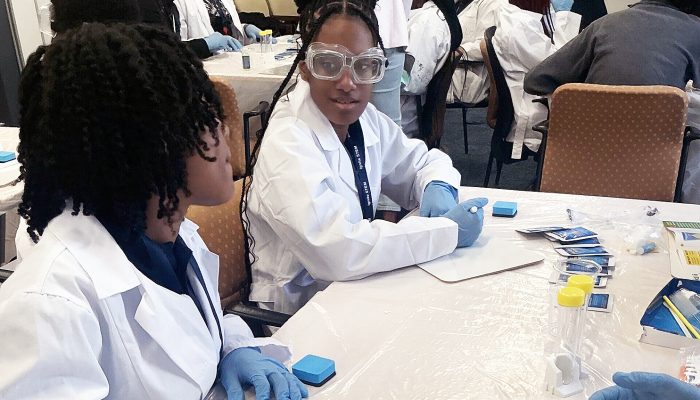By Edward Borrelli
“Our families were scattered, across the entire city, and that made it really hard to come together as a community.”
That was the uphill battle that Ester Roche-Curet, the Community School Coordinator at Hamilton Disston Elementary, faced during the pandemic.
In each Community School, a Coordinator supports strategic partnerships and programs that promote wellness, stability, and learning opportunities for students, families, and neighbors. The program is overseen by the Office of Children and Families in partnership with the School District of Philadelphia.
Bringing the school community together has been the focus for Ester Roche-Curet since Hamilton Disston became a Community School in 2019. That goal became even more important during the pandemic.
For more than two years, Ester has helped to navigate her community through the challenges posed by the pandemic, including virtual learning and a return to in-person, all while working with school leadership to keep families engaged and coming back.
“A lot of families didn’t feel engaged with the school [before it became a Community School in 2019]. They felt it was the local school their child had to attend, but they didn’t see it as a place for them to get anything else. So that’s really been my biggest challenge: trying to get families engaged and seeing the full menu of what we have to offer.”
At Disston, this “menu” includes weekly produce distributions, afterschool programs, and online ESL classes offered through the Office of Adult Education. At Hamilton Disston, afterschool programs, case management and attendance supports are all offered through CORA Services, a non-profit that assists children, youth and families experiencing emotional, academic and social challenges which impede their development and productivity.
All of which have been possible through the Community Schools partnership.
Community School Coordinators create, strengthen, and maintain the bridge between the school and community. The job of the Coordinator is wide reaching, but, like most jobs focused on supporting children, it isn’t done alone.
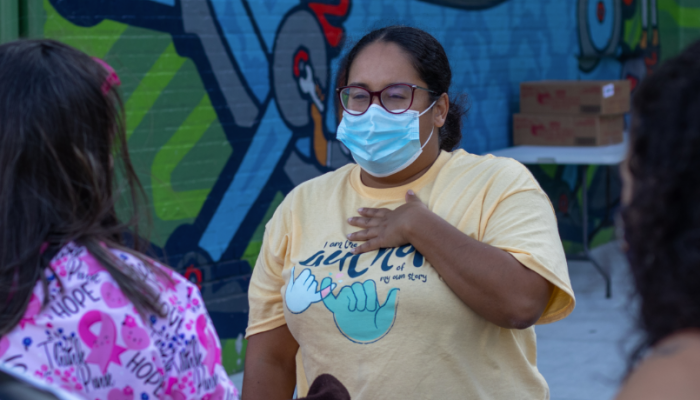
“This team is a big motivation for me,” Ester says. “Seeing all of these teams, like the school leadership team, the attendance team, and now the General Case Management (GCM) team come together really empowers me to do my job. When this is all firing at full gear, then we’re going to do really well. We might not see it tomorrow, but down the line we are going to thrive with all these tools in place.”
One key focus for the Coordinators is attendance. Consistent attendance lays the groundwork for a child’s education, so Community Schools work with families and community members to encourage showing up every school day, and to strengthen engagement and relationships in the school community.
That job is the sole focus of the Attendance Case Management (ACM) Team.
Working in tandem with the school leadership team, the ACM team identifies students who are at risk of becoming truant. Once identified, the team comes together with the student, their family, and the school leadership teams to learn why there are so many absences, and work together to remove those barriers to attendance.
“By having this team in place, we can tackle all of these issues and really build on it year over year,” Ester says. “So we may not see big change immediately, but we are constantly improving and getting kids reengaged.”
Attendance issues don’t happen in a bubble, and are often the result of additional problems at home. For families struggling, Ester turns to the school’s General Case Management Team. This team works with families to identify the barriers keeping them from success.
The General Case Management team is a recent addition to Disston. It consists of a supervisor and two case managers who work to ensure equitable access to additional services. Along with Community School Coordinators and school leadership, the team members conduct regular home visitations, family forums and provide additional services, including funding for needed resources like food and utilities.
At Disston, the pain points are clear.
“We have a lot of immigrants in this neighborhood, and a lot of families hit hard by the pandemic.” says Ester. “A common support request the General Case Management team gets is support with finding new jobs and better opportunities for families who might be struggling to find their footing.”
Working in schools requires people to really lean in and be present for the sake of the children, something Ester says these new teams are doing with flying colors.
“They have really come in and immediately hit the ground running. They’ve become a part of the school community and that’s the most important thing. Families now know they have another group of people here to help them.”
And for Ester Roche-Curet, that outcome makes the struggles of the past few years worthwhile.
Community Schools are a partnership among the City of Philadelphia, the School District of Philadelphia, and school communities to remove barriers to learning and support the success of each student.
There are currently 17 City-designated Community Schools, serving nearly 10,000 students. Community Schools are supported by the Philadelphia Beverage Tax.

